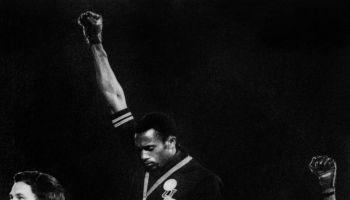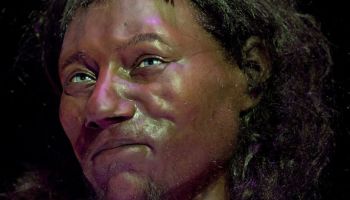“He just called me nigga!” says Obi. “Did you hear? He just called me nigga.”
“He” is the White hot dog vendor who has, in fact, just called Obi “nigga” – or “negao” in Portuguese – to tell him that his hot dog is ready and that he needs to come and get it. This all happens at around midnight at the entrance of Rua Um in Rio de Janeiro’s Rocinha favela. But Obi isn’t upset. In fact, he’s doubled over with laughter, trying his best to remain upright. He finally has proof of a point he’s been making.
SEE ALSO: 2016 Rio Olympics Coverage
“In Brazil, calling somebody ‘nigga’ isn’t offensive,” he tells me. “If you call somebody ‘Black,’ that’s offensive. But ‘nigga’ isn’t offensive.”
But I’m not a negao, I was told. I’m American, and as an American, I’m essentially seen as White — except when it’s not obvious that I’m American and then I’m Black again, a negao. The transition can be almost instantaneous.
On numerous occasions, I’ve been walking toward a restaurant or bar alone or with other young Black men and a bouncer steps forward to stop me and ask what I want. The moment I speak to him, even if it’s in Portuguese, he recognizes my accent and his posture, demeanor, and cadence immediately change.
Josh Morris, who traveled to Brazil for a vacation last month, had a similar experience.
“We went to a bar, it was an upscale sports bar, and the guy at the door just was looking at us really crazy originally,” says Morris. “He said something in Portuguese to us, but then he said something in English, and we responded that we were here to watch the game. There were three bouncers…and they all had a real cold face, but when he turned and said, ‘American,’ they all were just like, ‘Oh, OK, you can come in.’ That kind of turned it on to us that if we were Brazilian guys, we probably weren’t getting in here.”
Despite Brazil’s reputation as a melting pot of cultures, de facto racial stratification still largely exists. Many people outside the country see the racially mixed population and assume that no racial barriers exist, but if you ask the country’s Black residents that’s understood not to be the case.
Brazilian Musician Paulo “Black Paul” Roberto says he can feel the racism in his home country.
“I have been to other countries, and so when I come back to Brazil, I can feel the way I am looked at here,” he says.
The numbers clearly tell a story of economic segregation as well: Not a single one of the companies listed on Brazil’s primary stock exchange has a Black CEO. Further, a survey done this year by research institute IBGE found that Black or mixed-race Brazilian workers earn around half (about $862 per month) of what their White counterparts make. Many argue that this difference in economic self-sufficiency is what’s really at the heart of prejudice in Brazil.
“Racism in Brazil is very disguised,” says Danielle Fernandes, a Black Brazilian from Sao Goncalo. “I do not feel the racism is on account of color but social condition. For me, everything comes down to whether [a person has] money or not.”
The assumption is often that Blacks, or negaos, do not have money, Brazilians say, which manifests itself in other aspects of society. On the country’s very popular soap operas, stars are almost always White. In a country where 51 percent of the population is Black or mixed race, just 12 percent of the cast of the country’s most-popular prime-time novela, “Em Familia,” is Black or mixed.
Some say that this also leads to Brazil’s Black population missing out on other important opportunities. Luiza Bairros, the only Black member of Brazilian president Dilma Rousseff’s cabinet, explained the contribution of social stigma to professional life in Brazil during an interview with Bloomberg.com earlier this year.
“Government institutions reproduce the same standard of invisibility of Blacks that you encounter in the rest of society,” Bairros told the website. “You don’t see Black people writing for newspapers or directing companies, so it’s more difficult to convince voters to put them in to office.”
In Salvador, Bahian, a majority Black city north of Rio and Sao Paulo, I met a light-skinned drink vendor named Davison. After hearing me speak, he asked where I was from. I told him. His response was refreshing.
“Well, where you’re from is not important – Africa, the Caribbean, the United States. What’s important is the color,” he said, rubbing the skin on his forearm. Still, I was treated differently by most Bahians after I began speaking than I had been before.
It made me wonder. As long as I’m seen as American and not Black by most Brazilians, nothing I do is in concert with other Black people. Whether I’m rude or polite, ambitious, lazy, kind, or malicious, my behavior doesn’t reflect on other people of my race.
In Brazil, is it better not to be a negao?

















